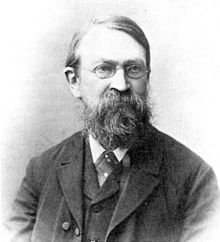Vienna Circle Begining Philosophy of Science
Called "Vienna Circle" (Wiener Kreis) a group of scientists and philosophers trained in Vienna from 1923 around Schlick, to develop a new philosophy of science with rigor, and excluding consideration metaphysics. Guiding themes of the original group were developed in collaboration with another organization founded in Berlin under the leadership of Reichenbach, and their development was the neo-positivism, or logical positivism. After the outbreak of the Vienna Circle in the years preceding World War II, most of its
members have pursued their careers in America and England, and their work was imposed on the entire philosophical world. Among those whose influence has been and remains the largest include Carnap, Gödel, Hempel, Reichenbach.
1. Influences and context:
An American connoisseur of German philosophical world between the wars characterized it in 1930, the dominant influence of a purely idealist tradition Aboriginal him as a "stunning indifference" to the results and methods modern physics prevails, and "it is not uncommon to hear, on occasion, a specialized scientific activity is an obstacle to greater philosophical intuition ... "(S. Hook, Journal of American Philosophy, vol. XXVII, No. 6, 1930).
This is probably react against this situation that the founders of the Vienna Circle, which typically cited as inspiration immediate Mach, Poincaré, Einstein, Frege, Russell and Wittgenstein.
2. The Vienna Circle and the Berlin nucleus:
Physicist Moritz Schlick was appointed in 1922 to the chair of Philosophy and History of the Inductive Sciences from the University of Vienna, position held previously by Mach (1895-1901) and Boltzmann. Gather around him in 1925, every Thursday evening, students and teachers from various disciplines, among them K. Gödel, H. Hahn, K. Reidemeister, F. Waismann (mathematicians), F. Kaufmann (lawyer), V. Kraft (historian), O. Neurath (sociologist), H. Feigl (physicist). Occasional or regular visitors join the Viennese circle, as P. Frank, physicist Prague, E. Kaila C. G. J. Hempel and A. Ayer, respectively philosophers from Turku, Berlin and Oxford.
In 1926, Carnap was appointed to the University of Vienna and became a leader of the circle, which is in Ernst-Mach Association (Verein Ernst Mach, 1929). Neurath presents it as a gathering place for supporters of a "worldview, free of metaphysics," and he hopes that this union of scholars from various disciplines will overcome their differences and reach a unitary explanation of the world (Erkenntnis, No. 1).
At the same time was based in Berlin, around Reichenbach, J. Dubislav and F. Kraus, Society for Empirical Philosophy (Gesellschaft für empirische Philosophy, 1928). Its aim was to promote scientific philosophy, "that is to say, a philosophical method which, by analysis and critique of the technical results of science leads to pose and solve philosophical problems. Such a scientific method of analysis, the company explicitly opposes all pretensions of philosophy to assert a right proper to reason and make good proposals in principle, exempted from the control of scientific criticism "(Erkenntnis, ibid .).
Both groups of Vienna and Berlin come together in 1929 to organize in Prague a "session for a theory of knowledge in the sciences," and they jointly founded in 1930, the journal Erkenntnis edited by Carnap and Reichenbach. Relations are then tied with the Polish group of logicians Warsaw-Lwow (represented by A. Tarski, in particular).
3. The program:
Under the name of "scientific world", the joint program characterizes a "turning of philosophy" (Schlick). It has three major principles.
1. Science should be unified in its language and its underlying facts. All scientific knowledge, in fact, comes from either the experience or the "formatting tautological thinking."
2. Philosophy, it is (Carnap, Reichenbach) or is not (Schlick) considered a real science, is reduced to an elucidation of scientific proposals relating directly or indirectly on experience, science proposals themselves have responsible for verifying. Philosophy will be foremost philosophy of science, and dealing with this positive aspect of human knowledge, it will tend towards effective objective (Reichenbach, the introduction of Erkenntnis No. 1). To make clear the language of science, it will use the logical symbolism of Frege and Russell.
3. The success of such a philosophy announces the end of metaphysics: "For it will not be necessary to deal with" philosophical questions ", since any question will be treated philosophically, that is to say in plain language and provided meaning "(Schlick, Die Wende der Philosophie). And the traditional questions of metaphysics will then appear as covering only words whose meaning was not clear enough, and proposals unverifiable.
4. The period of congresses and the Diaspora:
Logical positivism or neo-positivism, is introduced on the international scene at the Seventh Congress of Philosophy at Oxford in 1930, through the voice of Schlick (The Future of Philosophy). Following the preparatory conference in Prague (1934), international congresses of scientific philosophy held in Paris (1935), Copenhagen (1936), Paris (1937), Cambridge (UK, 1938), Cambridge (Mass. ., 1939) and Chicago (1941).
Similarly, collections of books are born, founded by Frank and Schlick (Schriften zur wissenschaftlichen Weltauffassung) by Neurath, Carnap, and Frank Hahn (Einheitswissenschaft). Publication of the International Encyclopedia of Unified Science (International Encyclopedia of the unity of science), designed by Neurath, is performed after his death (1934). Erkenntnis review is relayed from the seventh volume (1939) in the Journal of Unified Science. The influence of the ideas of the Vienna Circle then extends to the whole philosophical world.
However, its geographical center shifted to the Anglo-Saxon world. From 1930, the Nazis forced the Viennese group to disperse. Carnap emigrated to Prague and Chicago, and Neurath Waismann England Zilsel, Kaufmann, Menger, Gödel, Hempel and Feigl United States.
In 1938, the Vienna Circle is no longer itself, and the work of its members or sympathizers are distinguished more by their personal developments. However, the original brand and stronger than the circle printed on the philosophy of the twentieth century, both by critics of some of its positions as they inspire developments, continues to manifest itself.












No comments:
Post a Comment